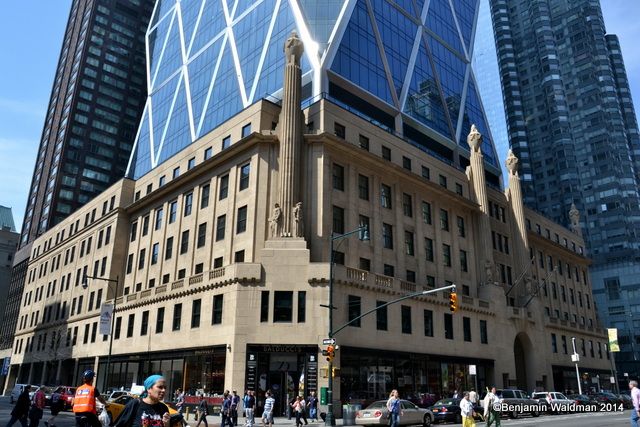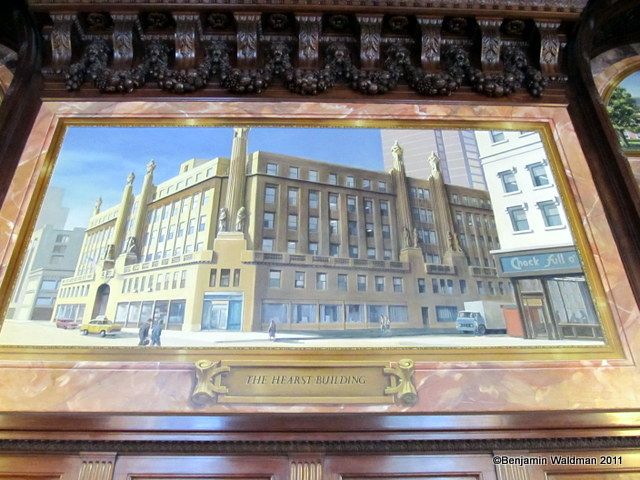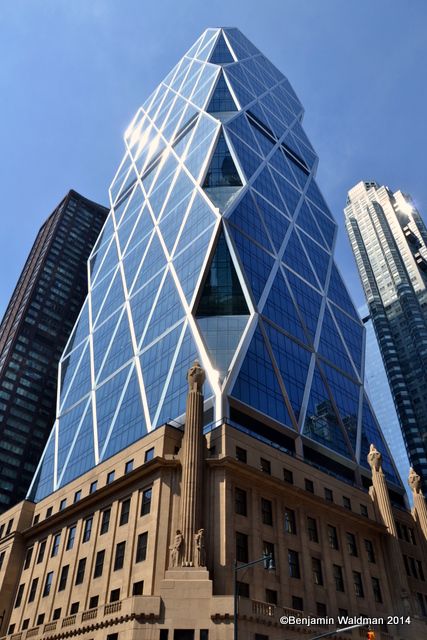Last-Minute NYC Holiday Gift Guide 🎁
We’ve created a holiday gift guide with presents for the intrepid New Yorker that should arrive just in time—



In 1926, William Randolph Hearst commissioned Joseph Urban, one of the most important theater designers of the time, to create a building to house his magazine empire. The International Magazine Building, which is located at 300 West 57 Street, was built between 1927 and 1928 at a cost of two million dollars. The building was supposed to convey “its cultural importance, expressing the influence of [Hearst’s] magazines ‘on the thought and education for the reading public.”
The building was designed with an auditorium for concerts, lectures, “and other similar educational activities.” Between 1945 and 1947, George B. Post & Sons designed nine additional stories for the building. The plans were filed in 1946 but never realized.

New York Public Library mural of the Hearst Building in its unfinished state
In addition to the tower, Hearst had also envisioned the creation of Hearst Plaza. The Plaza in its sheer size and grandeur, in general Hearst fashion, would have put Park Row, Times Square, and Herald Square to shame. The Metropolitan Opera House, in addition to numerous other legitimate theaters would have made Hearst Plaza the City’s prime cultural destination. (Urban designed the Metropolitan Opera House’s 57th Street site, which was to be located adjacent to the Hearst Building, and as a result the two designs clearly complement one another.)
The Depression and Hearst’s business failures resulted in the Hearst Magazine Building becoming the sole survivor of this grand plan. Between failing newspapers, unsuccessful film ventures, and outstanding mortgages, Hearst’s debt piled up to a whopping $126 million.

Between 2003 and 2006, almost eighty years after Urban’s base was constructed, a 46-story addition was constructed. Designed by Norman Foster, the tower is constructed of undulating glass and fuses the old and new (just as he did at the British Museum). While different than Urban’s original design, Foster’s tower serves as a bridge, connecting the New York of yesterday with the New York of today.
Subscribe to our newsletter